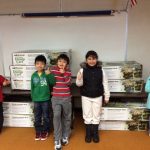
Winter Spotlight On Boze
SPOTLIGHT ON BOZE: Jenn Aaron, 1st grade
What project-based learning unit are your students doing for Fall/Winter?
Our first grade students are working on a unit connecting animal adaptations to human safety needs. They explored many different physical adaptations that help animals stay safe and protected. Our students then studied a variety of community helpers and had the opportunity to interview several (electrical contractor, rock climber, firefighter, and law enforcement) to find out more about how they stay safe at work. The final project involves creating a new safety invention for a community member based on an animal adaptation.
How has project based learning influenced your everyday teaching?
Project based learning has really helped integrate and blend different content areas within my classroom. I like the freedom of blending technology, reading, writing, science, and art together to really help my students build personal connections to the subjects we are studying. We have learned about non-fiction text features and done some close reading around animal adaptations and community helpers. I feel like I have the freedom to take student ideas and run with them “on the fly”. If kids bring up questions or show interest in a new concept, we will grab the tablet or computer and start searching for images or information. Using PBL has really taken the “walls” out of my daily schedule. It’s not 60 minutes of math, 90 minutes of reading, then 30 minutes of writing with no continuity. We get the opportunity to blend all of those content areas pretty seamlessly which really gives our learning a more authentic arc.
How have your students responded to this project idea? Can you give a few examples?
When the first grade team initially came to the animal adaptation idea through the NGSS (Next Gen Science Standards), we knew the kids would be hooked. Primary students are often very interested in animals and pets, so we thought it would be a good way to test the waters. Students were certainly excited and literally cheered when it was time to read about or study a new animal. They were unsure what to expect when our first community member came to be interviewed, but they got the hang of it quickly and really enjoyed the chance to ask questions and see safety equipment. The most difficult part so far has been the group work. Students this age are still often very egocentric, so we have had to do a lot of work around how to be a good group member. It’s been difficult for them to negotiate one group invention rather than getting to choose their own idea. It’s been exciting to see how quickly they have soaked up new vocabulary. Words like adaptation, community, and similarity have become part of our daily conversation. It’s been interesting as facilitators to scaffold the pieces of the project that kids are able to do independently. Many students are still beginning readers and writers, so they need additional support to show their understanding and enthusiasm for their work.

College. Career. Ready
What suggestions or advice do you have for teachers who are interested in incorporating project based learning into their everyday classroom experience?
First, do some research. Find some reliable information (like Edutopia and BIE) to help give you an overview as well as a template for getting started. I certainly recommend working with a team so you can bounce ideas off of each other and support each other. It was especially helpful for us to hear from others who had started PBL to hear what their experiences had been. I found great inspiration online from PBL projects that other people have shared. Some were good, some were just okay, but they all gave us ideas and generated conversation about how we could incorporate different standards or activities. The TAF training we did this summer was really instrumental in helping us all wrap our heads around the possibilities for our students and our classrooms.
The biggest thing for our team was just taking a deep breath and taking that first step. Once we started wading in, the enthusiasm just built naturally between the students and the teachers. We really fed off of each other and just kept coming up with new ideas and new connections. We felt very supported by the statement that “PBL is about the process, not the product”. It’s been a source of some anxiety to let go of the old direct instruction scripted curriculum model, but the support we have received has really given us the courage to just release that anxiety and embrace the messiness!





